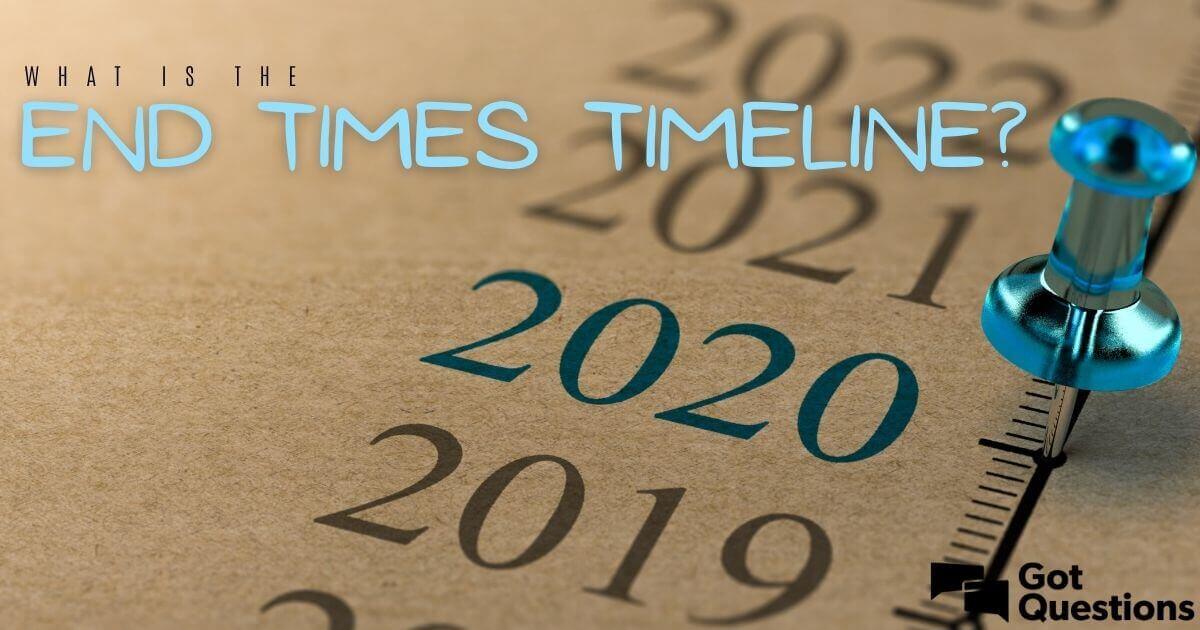What is the end times timeline? What is the order of end-times events, according to the pre-trib, literal interpretation of Bible prophecy?
www.gotquestions.org
1) There is not even a hint about the rapture in 1 Corinthians 15.
2) The one who restrains the man of lawlessness is probably the Holy Spirit, but the timing is vague beyond that.
3) Since the Book of Revelation is symbolic, the two beasts might be the worldwide religious and political systems that come under Satan's influences, not the Antichrist.
4) Revelation 6 and 7 form a single vision beginning with the plagues and ending with the Old and New Testament people of God's condition in their final state (chapter 7).
Chapters 8-11 are another symbolic vision that goes from plagues that are experienced in the present like chapter 6 and continuing through the preaching of the Good News to the time of punishment with God's judgment (11:18-19).
Chapter 12 is acknowledged by most commentators as a new beginning because it describes the woman, probably the Old Testament people of God in Mary, giving birth to Jesus, who ascends to heaven with all the other events assumed, and the dragon, which is Satan. It's also important because it explains much of its symbolism, a clue to the whole book's character as symbolic.
This new symbolic vision about this present age, which I interpret as the time between Jesus' first and second comings, goes to the end of chapter 14, which again describes in symbolic form the end-time harvest at the end of that chapter.
Chapters 15-16 show the tragedies of the present age, again symbolically, leading up to their intensification until the time of the final judgment at Jesus' second coming.
Do you see the pattern, which is completed with chapters 16-19, which ends with a symbolic picture of Jesus' second coming when he arrives to rule, not to die.
Then, chapter 20 starts the same pattern over again one last time with Jesus' first coming with 1,000 years as a symbolic picture of the time between the two comings leading up to Jesus' final judgment, also pictured in Matthew 25, and the final arrival of the new Jerusalem, as the Old and New Testament people of God coming down out of heaven to the new earth. I would say that 1 Thessalonians 4;13-18 is a literal description of the believers who are left on the earth and the resurrected believers having their resurrected bodies rising to meet Jesus in the air and accompanying him back to the new earth to live with him forever, pictured in Revelation 21 and 22.
This interpretation is just as possible as yours, since it has the visions' patterns and the symbolic nature of the book like the apocalyptic literature of that time in mind. Of course, God inspired this book, not the other literature.



